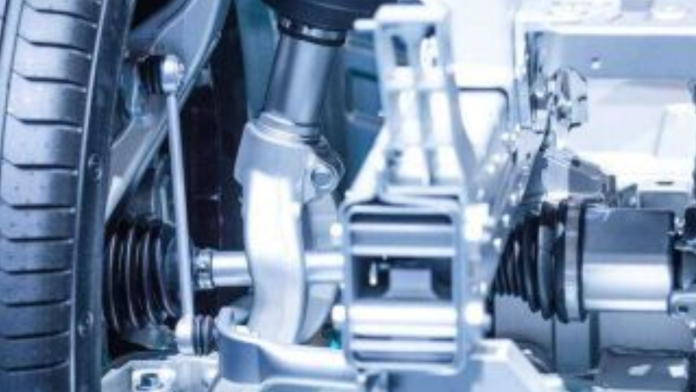The forging method can be applied to various automobile components to improve their strength, longevity, and functionality. One of the most important parts is the crankshaft, which is superior strength to handle the demands of high-performance engines when it is precision-forged. Forging helps connect rods, which are essential for power transmission, withstand fatigue, and maintain structural integrity in harsh environments. The lighter weight and better heat dissipation of forged pistons enhance power delivery and combustion.
Gears in both the differential and the transmission can be forged for smooth power changes to retain strength and dimensional accuracy. Precision forge car parts help camshafts, which control valve timing and function accurately and dependably. A crucial component of the suspension system, the control arms, maybe forged for increased strength and stability, particularly during fast movements.
Parts Are Frequently Forged For High-Performance Cars
Performance cars are renowned for their quickness, accuracy, and agility. Often, the fine engineering of essential parts gives them extraordinary powers. The usage of forged automobile components is a crucial component that considerably enhances the performance and dependability of modern cars.
Forged Crankshafts
A performance engine’s forged crankshaft is its central component. This essential item is precisely forged to provide exceptional strength and longevity. A crankshaft that can tolerate extreme stress is necessary for high-performance driving, and forging guarantees a sturdy structure that can survive the rigors of quick acceleration and high RPMs.
Strong Connecting Rods
High-performance engines put connecting rods under tremendous strain thus, forging them increases their strength and fatigue resistance. To ensure that the power produced is effectively transferred to the pistons and eventually to the vehicle’s powertrain, forged connecting rods support the structural integrity of the engine.
Forged Pistons
Performance engines are known for their forged pistons, created using precise forging procedures. These pistons have better heat dissipation, less weight, and greater strength. Pistons with ideal forms can be produced because of the forging process’ accuracy, which helps with power delivery and combustion efficiency.
Performance Gears
Precision forging is a standard process used on performance vehicle gears, whether they are found in the differential or transmission. Gears are guaranteed to retain their strength, hardness, and dimensional precision through controlled deformation. Forged gears help with flawless gear changes, which are essential for transferring power to the wheels.
Accurate Timing of Forged Camshafts
Camshafts are essential to regulate the opening and closing of engine valves and affect overall performance. Precisely engineered, forged camshafts guarantee precise valve timing, enhancing power delivery and combustion efficiency throughout the RPM range.
Lightweight Forged Wheels
Lightweight forged wheels offer a careful balance between strength and decreased unsprung mass and are beneficial for performance vehicles. Forging makes it possible to create complex designs that improve utility and looks while improving handling, acceleration, and braking capabilities.
Forged Control Arms
Crucial parts of a car’s suspension system and control arms are frequently forged for high-performance uses. Forged control arms provide superior strength and longevity, contributing to accurate handling characteristics and stability during fast maneuvers.
Brake Calipers Performance
Forged brake calipers have improved strength and heat-dissipating capabilities because they are subjected to high temperatures and stress during high-performance braking. The precision forging process guarantees that the calipers can endure high temperatures during performance driving, preserving their longevity and effectiveness.
Forged Differential Housings
Forged differential housings give high-performance cars with significant torque demands the requisite longevity. The housing is guaranteed to bear the forces produced by sudden deceleration, tight turns, and fast acceleration thanks to precision forging.
Forged Exhaust Components
Exhaust components, including manifolds and headers, gain from precision forging to improve durability and maximize gas flow. Improved power output, engine efficiency, and the distinctive exhaust notes that define high-performance cars are all attributed to forged exhaust components.
Final Thoughts
The usage of forged automobile components is required and a matter of preference in high-performance vehicles. These vehicles operate in harsh environments, necessitating parts that can tolerate extreme strain, temperature swings, and quick changes, whether the engine’s forged crankshaft or the finely forged connecting rods that convert energy into motion.









